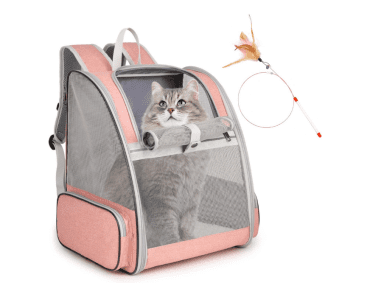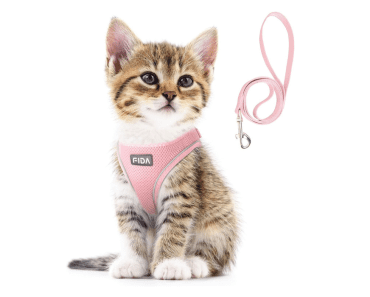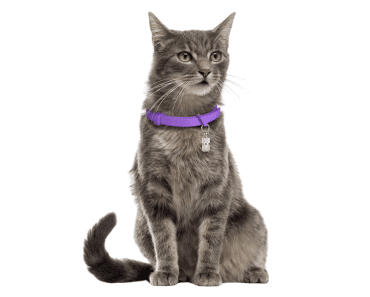As a cat owner, I’m always curious about what foods are safe for my feline friend to eat. On my quest to discover new cat-friendly fruits, I stumbled upon an interesting question: Can cats eat raspberries? Intrigued, I decided to dig deeper and find out the truth.
Raspberries, like many other fruits, have become a popular choice for health-conscious humans. But are they safe for our furry companions? Let’s explore the topic and uncover the facts about feeding cats raspberries.
Can Cats Eat Raspberries? Yes, but only given in minimal quantities.
- Cats can eat raspberries, but they should only be given in moderation.
- Raspberries are not a necessary part of a cat’s diet.
- Feeding cats too many raspberries can lead to digestive issues.
- Cats are carnivores, and their primary nutritional needs should come from meat.
- Always consult with a veterinarian before introducing new foods to your cat’s diet.
Can Cats Eat Raspberries?
While cats can consume raspberries, it is not advisable to include them as a regular part of their diet. Raspberries are non-toxic to cats, but their digestive systems are better suited for processing meat rather than plant-based sources. Cats are obligate carnivores and require a dominant protein intake for optimal health.
Although raspberries offer some nutritional benefits, it is important to limit their consumption to avoid any potential digestive issues. Giving cats 1-2 raspberries once or twice a week in small amounts is the recommended approach.
It’s important to note that cats have specific dietary requirements, and their primary source of nutrients should come from animal-based proteins. While a small treat of raspberries can be enjoyed by your feline companion, it’s essential to maintain a balanced and appropriate diet for their overall health.
How Many Raspberries Can Cats Safely Eat?
Cats should only be given a small amount of raspberries as a treat. It’s important to remember that moderation is key when it comes to feeding cats any kind of human food, including raspberries. So, how many raspberries can cats eat without risking their health?
The recommended maximum amount of raspberries for cats is 1-2 raspberries, once or twice a week. This small portion size ensures that cats receive the benefits of raspberries without experiencing any discomfort or potential health issues.
Feeding cats more than the recommended amount of raspberries can lead to digestive problems such as diarrhea or an upset stomach. As carnivores, cats’ bodies are designed to obtain their nutritional requirements primarily from meat. While raspberries offer some nutritional benefits, they are not essential for a cat’s overall health.
It’s important to keep in mind that individual cats may have different sensitivities and reactions to certain foods. If you’re unsure about how many raspberries to give to your cat, it’s always best to consult with a veterinarian. They can provide personalized advice based on your cat’s specific needs and dietary restrictions.
Remember, it’s always better to be cautious and follow the recommended guidelines to ensure the well-being of your furry friend.
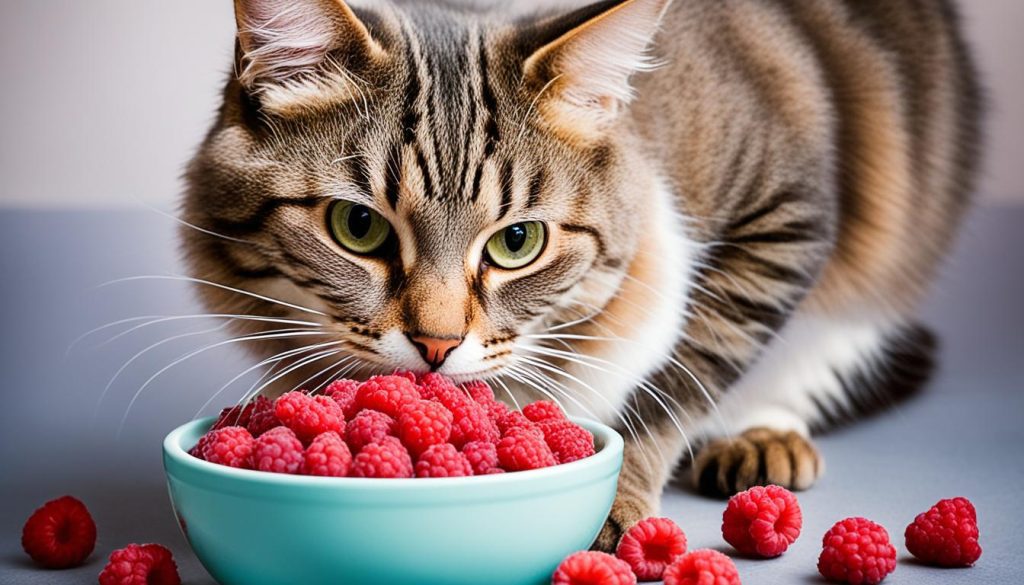
What Is Xylitol?
Raspberries, a popular fruit enjoyed by many, also contain xylitol, a sugar substitute. While the amount of xylitol in raspberries is minimal, it’s important to be aware of its potential toxicity to animals, including cats. Xylitol can be dangerous for cats when consumed in large amounts, so it’s best to limit their intake of raspberries to small portions.
Although xylitol is generally considered safe for human consumption, it can have adverse effects on pets. Xylitol is known to cause a spike in insulin levels in animals, leading to hypoglycemia, which is a dangerous drop in blood sugar levels. In cats, the consequences of xylitol ingestion can range from gastrointestinal distress to liver damage.
It’s crucial to prioritize the well-being of our feline friends and ensure they stay safe from potential hazards. While raspberries are generally fine for cats to consume in moderation, it’s best to keep their raspberry intake to the recommended small portions. By doing so, we can prevent any potential harm from xylitol and keep our cats healthy and happy.
Possible Side Effects of Cats Eating Raspberries
While cats can enjoy the occasional raspberry as a treat, it’s essential to be aware of the possible side effects if they consume too many. Excessive raspberry consumption can lead to various discomforts and health issues in cats.
One of the side effects is abdominal pain. Cats may experience discomfort in their stomach and gut, leading to restlessness and changes in behavior. They may become agitated or display signs of discomfort, such as pacing or discomfort when touched.
Another potential side effect is kidney damage. Raspberries contain oxalates, which can contribute to the formation of kidney stones. If a cat consumes an excessive amount of raspberries, their kidneys may become strained, leading to long-term damage and potential urinary problems.
Raspberry consumption can also contribute to dehydration. Due to the high water content in raspberries, excessive consumption can lead to increased urination, which may result in dehydration. It’s important to ensure that cats have access to fresh water at all times to prevent dehydration.
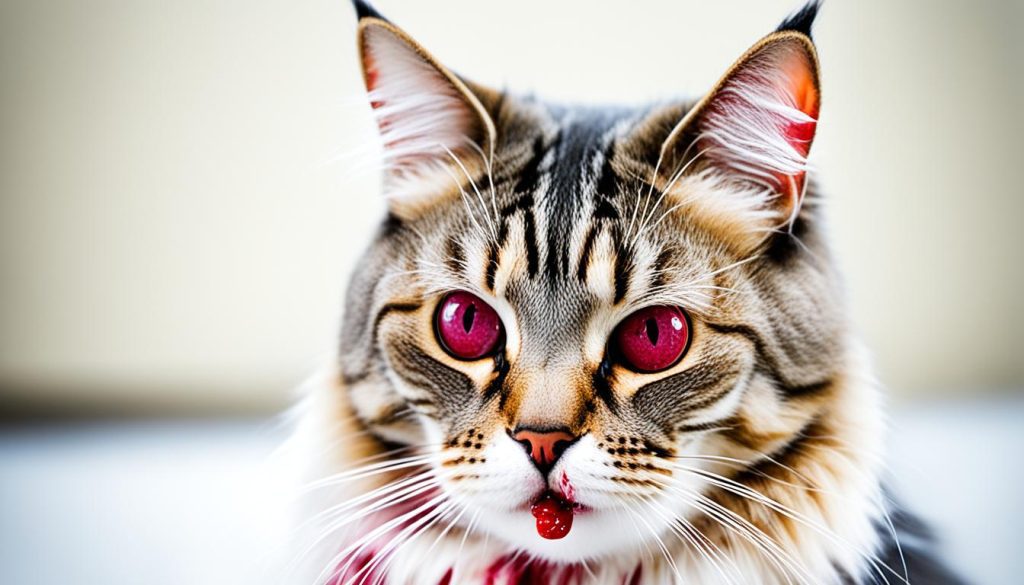
Diarrhea is another possible side effect. Raspberries contain fiber, which can act as a natural laxative. If cats consume too many raspberries, it can cause loose stools or diarrhea, leading to discomfort and potential dehydration. Monitoring their stool consistency is crucial to spot any digestive issues.
Cats may also experience foul-smelling feces after consuming too many raspberries. The change in their digestive system can result in unpleasant-smelling feces, which can indicate that their gastrointestinal tract is not functioning optimally.
Lastly, cats may experience an upset stomach after consuming an excessive amount of raspberries. This can manifest as vomiting or general discomfort in the digestive system. It’s important to observe any changes in their behavior or appetite and consult a veterinarian if necessary.
By monitoring their raspberry intake and sticking to the recommended small portions, you can help minimize these potential side effects. Remember, raspberries should only be given as an occasional treat, and a balanced diet based on a feline’s carnivorous nature should always be the priority.
How To Serve Raspberries To Your Cat?
When it comes to serving raspberries to your feline friend, there are a few things to keep in mind. Raspberries can be served to cats either fresh or frozen, providing a delicious and refreshing treat. To ensure the safety of your cat, it’s important to take certain precautions.
If you choose to serve frozen raspberries, they can be a great option during hot summer days. The cold temperature adds a delightful twist, making it a refreshing treat that your cat will enjoy.
Prior to serving raspberries, it’s essential to wash them thoroughly to remove any pesticides or contaminants. This ensures that your cat gets a clean and safe treat. After washing, you can present the raspberries to your furry companion.
It’s important to be mindful of keeping raspberries out of your cat’s reach when not serving them. Cats may be curious and could consume too many raspberries if they have unrestricted access. Remember, moderation is key.
It’s crucial to note that raspberries should only be given as an occasional treat, rather than a regular part of your cat’s diet. While cats can enjoy raspberries, their main nutritional needs should be met through meat-based diets, as they are obligate carnivores.
Key points to remember when serving raspberries to your cat:
- Choose between fresh or frozen raspberries.
- Wash raspberries thoroughly before serving.
- Keep raspberries out of your cat’s reach when not serving.
- Remember to serve raspberries in moderation as an occasional treat.
Conclusion
Cats can safely eat raspberries as an occasional treat. While raspberries offer some nutritional benefits, they are not necessary for a cat’s overall health. Cats are carnivores, so their main source of nutrients should come from meat-based foods.
Raspberries are non-toxic to cats, but it’s important to be mindful of portion sizes. Feeding cats too many raspberries can lead to digestive issues and potential health problems. It’s best to limit their raspberry consumption to ensure their well-being.
If you’re considering introducing fruits into your cat’s diet, remember that not all fruits are cat-friendly. Always consult with your veterinarian to determine the appropriate diet and treats for your cat. They can provide you with tailored advice based on your cat’s individual needs.



